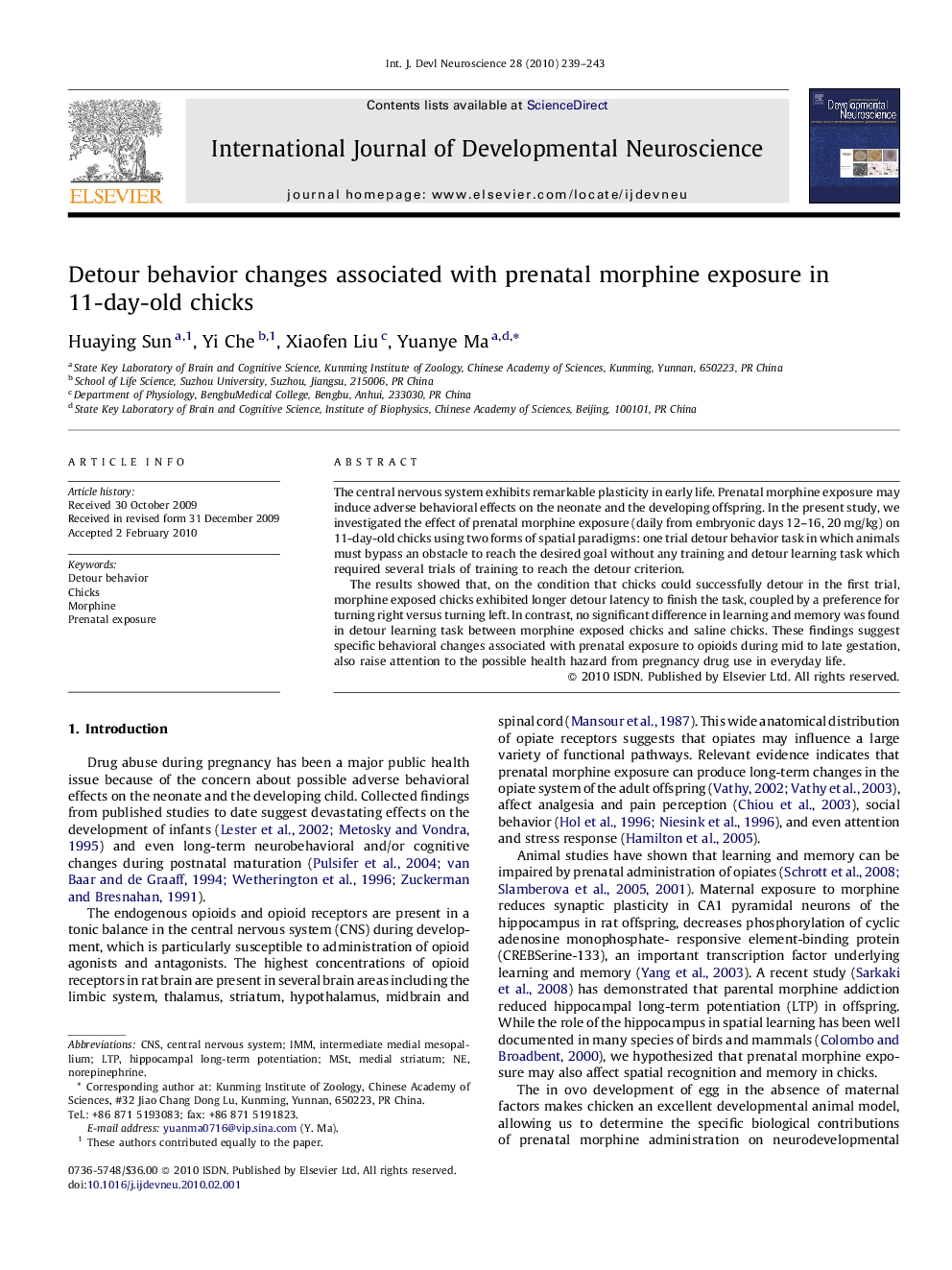| Article ID | Journal | Published Year | Pages | File Type |
|---|---|---|---|---|
| 2786723 | International Journal of Developmental Neuroscience | 2010 | 5 Pages |
The central nervous system exhibits remarkable plasticity in early life. Prenatal morphine exposure may induce adverse behavioral effects on the neonate and the developing offspring. In the present study, we investigated the effect of prenatal morphine exposure (daily from embryonic days 12–16, 20 mg/kg) on 11-day-old chicks using two forms of spatial paradigms: one trial detour behavior task in which animals must bypass an obstacle to reach the desired goal without any training and detour learning task which required several trials of training to reach the detour criterion.The results showed that, on the condition that chicks could successfully detour in the first trial, morphine exposed chicks exhibited longer detour latency to finish the task, coupled by a preference for turning right versus turning left. In contrast, no significant difference in learning and memory was found in detour learning task between morphine exposed chicks and saline chicks. These findings suggest specific behavioral changes associated with prenatal exposure to opioids during mid to late gestation, also raise attention to the possible health hazard from pregnancy drug use in everyday life.
